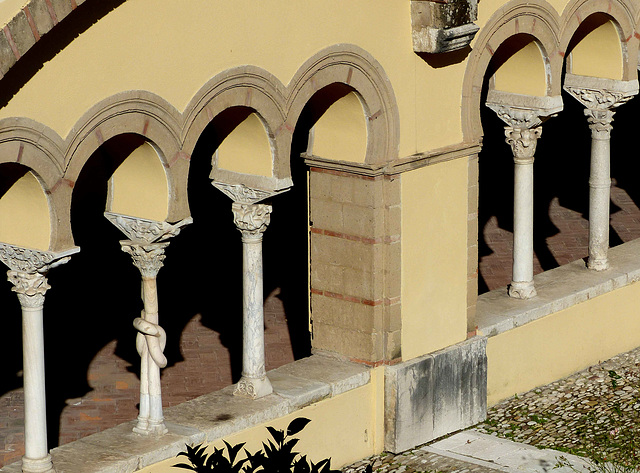Benevento - Santa Sofia
Benevento - Santa Sofia
Benevento - Santa Sofia
Benevento - Santa Sofia
Benevento - Santa Sofia
Benevento - Santa Sofia
Benevento - Santa Sofia
Benevento - Santa Sofia
Benevento - Santa Sofia
Benevento - Santa Sofia
Benevento - Santa Sofia
Benevento - Museo del Sannio
Benevento - Museo del Sannio
Benevento - Museo del Sannio
Benevento - Museo del Sannio
Benevento - Teatro romano
Benevento - Teatro romano
Benevento - Museo Arcos
Benevento - Museo Arcos
Benevento - Sant'Ilario in Port'Aurea
Cerignola - Cattedrale di San Pietro Apostolo
Puglia
Trani - San Nicola Pellegrino
Benevento - Santa Sofia
Benevento - Santa Sofia
Benevento - Santa Sofia
Benevento - Santa Sofia
Benevento - Santa Sofia
Benevento - Santa Sofia
Benevento - Arco di Traiano
Benevento - Duomo
Benevento - Duomo
Benevento - Duomo
Benevento - Duomo
Benevento - Duomo
Benevento - Duomo
Benevento - Duomo
Benevento - Duomo
Benevento - Duomo
Benevento - Duomo
Campobasso - San Leonardo
Campobasso - San Leonardo
Campobasso - San Bartolomeo
Campobasso - San Bartolomeo
Campobasso - San Bartolomeo
Location
See also...
Keywords
Authorizations, license
-
Visible by: Everyone -
All rights reserved
-
20 visits
Benevento - Santa Sofia


Due to its location and importance, Benevento was an important base for Roman rule in southern Italy for centuries. After the expansion of the Lombards, Benevento became the seat of Lombard dukes but repeatedly fell into dependence on the Franks and the German emperors. In 840, Benevento was occupied by the Muslims for a few years. The city has been the seat of the Archbishopric of Benevento since 969. In 1047 it fell into the hands of Norman princes with the exception of the city, which Emperor Henry III gave to Leo IX in 1053. In the 11th and 12th centuries, four councils were held in Benevento.
On February 26, 1266, in the Battle of Benevento, the Hohenstaufen Manfred, natural son of the Holy Roman Emperor Frederick II, was defeated by Charles of Anjou, after which the latter seized Apulia, Sicily, and Tuscia.
Santa Sofia was founded by the Lombard Arechis II of Benevento around 760. The church is a rotunda 28 m in diameter with an original star-shaped outline. The church was modeled on the Palatine Chapel of the Lombard king Liutprand in Pavia and, after the defeat of Desiderius by Charlemagne and the fall of the Lombard kingdom in northern Italy in 774, it became the national church of the Lombards who had taken shelter in the Duchy of Benevento. After the earthquakes of 1688 and 1702, Pope Benedict VIII had the church rebuilt, changing it in the Baroque style. In particular, he had the course of the outer walls made circular.
Santa Sofia included a monastery built between 1142 and 1176. Parts of the previous building from the 8th century, which was destroyed in the earthquake of 986, were reused. These buildings now house the Museo del Sannio.
Its most remarkable part is the Romanesque cloister, which clearly shows Arabic influences.
On February 26, 1266, in the Battle of Benevento, the Hohenstaufen Manfred, natural son of the Holy Roman Emperor Frederick II, was defeated by Charles of Anjou, after which the latter seized Apulia, Sicily, and Tuscia.
Santa Sofia was founded by the Lombard Arechis II of Benevento around 760. The church is a rotunda 28 m in diameter with an original star-shaped outline. The church was modeled on the Palatine Chapel of the Lombard king Liutprand in Pavia and, after the defeat of Desiderius by Charlemagne and the fall of the Lombard kingdom in northern Italy in 774, it became the national church of the Lombards who had taken shelter in the Duchy of Benevento. After the earthquakes of 1688 and 1702, Pope Benedict VIII had the church rebuilt, changing it in the Baroque style. In particular, he had the course of the outer walls made circular.
Santa Sofia included a monastery built between 1142 and 1176. Parts of the previous building from the 8th century, which was destroyed in the earthquake of 986, were reused. These buildings now house the Museo del Sannio.
Its most remarkable part is the Romanesque cloister, which clearly shows Arabic influences.
Paolo Tanino has particularly liked this photo
- Keyboard shortcuts:
Jump to top
RSS feed- Latest comments - Subscribe to the comment feeds of this photo
- ipernity © 2007-2024
- Help & Contact
|
Club news
|
About ipernity
|
History |
ipernity Club & Prices |
Guide of good conduct
Donate | Group guidelines | Privacy policy | Terms of use | Statutes | In memoria -
Facebook
Twitter

Sign-in to write a comment.